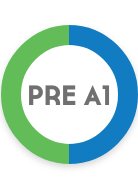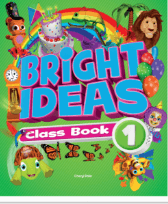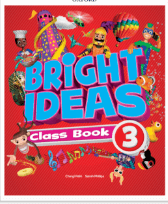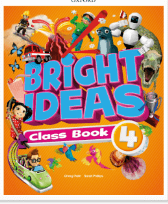
Cursos para niños de 7 a 9 años
Nuestros cursos iniciales tienen como objetivo complementar los conocimientos y el aprendizaje de nuestros estudiantes proporcionando un espacio amigable para practicar y ganar confianza.
Construimos las bases del inglés ampliando la conciencia léxica (vocabulario) y las habilidades comunicativas funcionales (conversación) con un contenido divertido y atractivo. A continuación encontrará más información sobre el horario de los cursos de Meridian, el programa de estudios y el calendario académico.
Horario
New students aged 7-9 can start their Meridian classes on Mondays or Tuesdays, providing you complete the registration by 9.30 am (UK) on the chosen start date. The course dates include public holidays and school closures.
During booking, you will find the course dates for children aged 7-9. A sample timetable is below. Time adjustments follow UK's GMT to BST transition. We will notify you if this affects your child's class.
2 veces por semana

3 veces por semana

¿QUÉ APRENDERÁ SU HIJO A CADA NIVEL?

• Puede reconocer números, precios, días de la semana, si se dicen con claridad y despacio.
• Puede reconocer palabras comunes acompañadas de imágenes como un libro ilustrado utilizando vocabulario habitual.
• Puede producir frases cortas sobre sí mismo, dando información personal básica.

• Puede entender y utilizar expresiones cotidianas y frases muy básicas.
• Puede presentarse a sí mismo y a los demás y puede hacer y responder a preguntas sobre detalles personales como dónde vive, las personas que conoce y las cosas que tiene.
• Puede interactuar de forma sencilla siempre que la otra persona hable despacio y con claridad y esté dispuesta a ayudar.

• Es capaz de comprender frases y expresiones de uso frecuente relacionadas con áreas de relevancia inmediata (por ejemplo, información personal y familiar muy básica, compras, geografía local, empleo).
• Puede comunicarse en tareas sencillas y rutinarias que requieran un intercambio de información simple y directo sobre asuntos cotidianos y rutinarios.
• Puede describir en términos sencillos aspectos de su contexto, su entorno inmediato y asuntos en áreas de necesidad inmediata.
Curso de contenidos de primaria para niños de 7 a 9 años
 Units 1-4
Units 1-4
|
Course Title
ITE
duration
12 weeks
18–30 h |
Temas centrales | Vocabulario básico | Gramática básica | Pronunciación básica |
|
• Hello |
• Classroom objects and |
• Say hello, introduce |
• Letters and phonics A-Z |
 Units 1 - 4
Units 1 - 4
|
Course Title
Pre-A1.1
duration
12 weeks
18–30 h |
Temas centrales | Vocabulario básico | Gramática básica | Pronunciación básica |
|
• What do we like about school? |
• Classroom objects and |
• ‘It’s a…’ and ‘have got/ |
• Consonant sounds /r/ |
 Units 5 - 8
Units 5 - 8
|
Course Title
Pre-A1.2duration
12 weeks18–30 h |
Temas centrales | Vocabulario básico | Gramática básica | Pronunciación básica |
|
• What do we eat? |
• Food |
• ‘What do you…?’ and |
• Consonant sounds /tʃ/ |
 Units 1 - 4
Units 1 - 4
|
Course Title
Pre-A1.3
duration
12 weeks
18–30 h |
Temas centrales | Vocabulario básico | Gramática básica | Pronunciación básica |
|
• Why do we like |
• Possessions and
|
• Possessive adjectives |
• Consonant sounds /w/ |
 Units 5 - 8
Units 5 - 8
|
Course Title
Pre-A1.4
duration
12 weeks
18–30 h |
Temas centrales | Vocabulario básico | Gramática básica | Pronunciación básica |
|
• Why are animals |
• Wild animals and things |
• Present simple |
• Pronounce the /h/ sound |
 Units 1 - 4
Units 1 - 4
|
Course Title
A1.1
duration
12 weeks
18– 30 h |
Temas centrales | Vocabulario básico | Gramática básica | Pronunciación básica |
|
• How do we make friends? |
• Activities and prepositions of movement |
• Present continuous and imperatives |
• The sound /ei/ |
 Units 5 - 8
Units 5 - 8
|
Course Title
A1.2
duration
12 weeks
18–30 h |
Temas centrales | Vocabulario básico | Gramática básica | Pronunciación básica |
|
• How do we make friends? |
• Beach activities and |
• Questions with ‘Want to’ |
• Vowel sounds /ɔː/ (walks) |
 Units 1 - 4
Units 1 - 4
|
Course Title
A1.3
duration
12 weeks
18–30 h |
Temas centrales | Vocabulario básico | Gramática básica | Pronunciación básica |
|
• What’s exciting about |
• Camping activities and |
• Past simple irregular |
• Vowel sounds /ɜː/ (third) |
 Units 5 - 8
Units 5 - 8
|
Course Title
A1.4
duration
12 weeks
18–30 h |
Temas centrales | Vocabulario básico | Gramática básica | Pronunciación básica |
|
• What’s great about a zoo? |
• Zoo animals and Zoo keeper jobs |
• ‘going to + affirmative, |
• The /aʊ/ sound |

